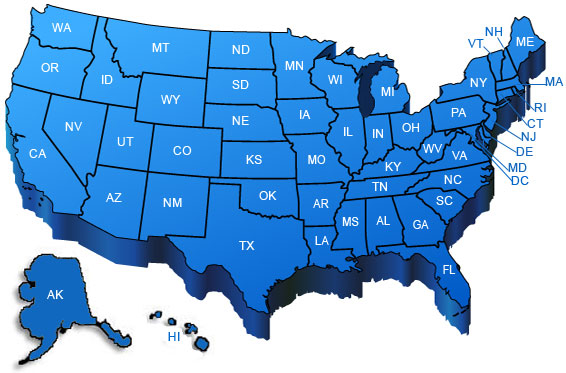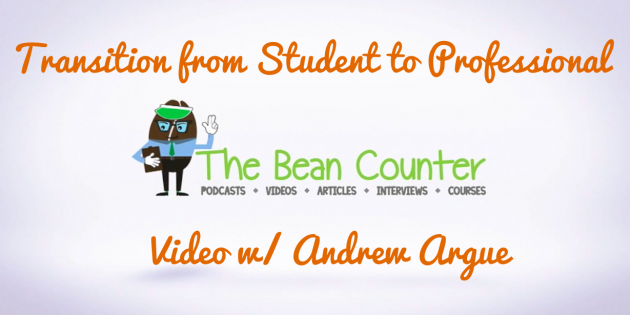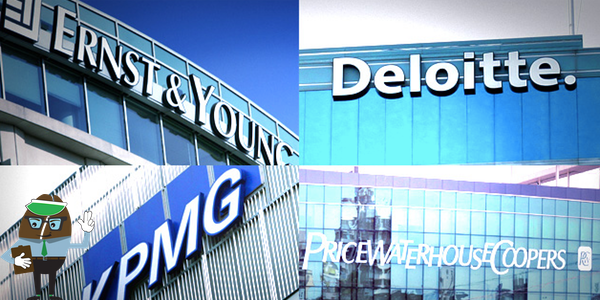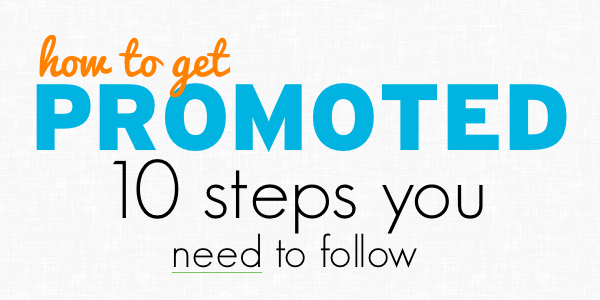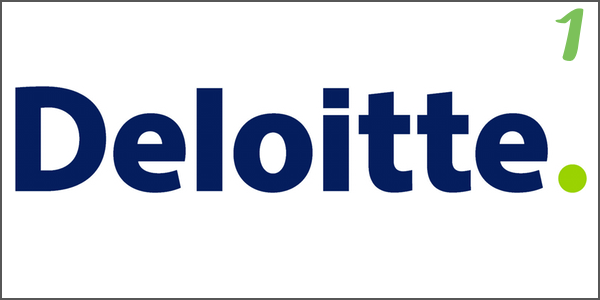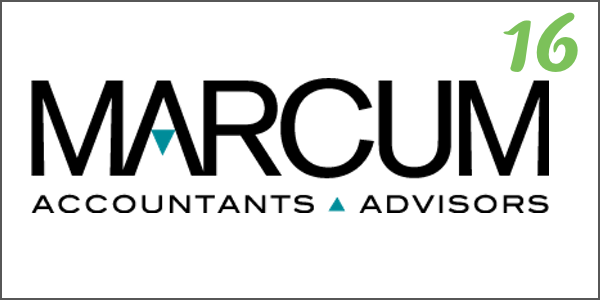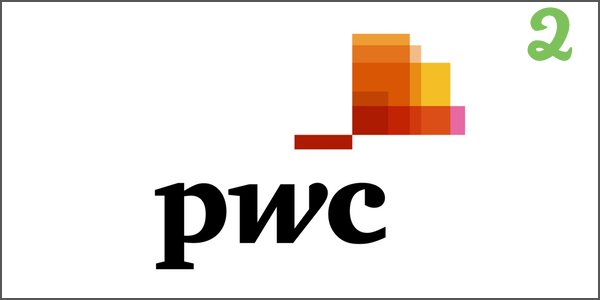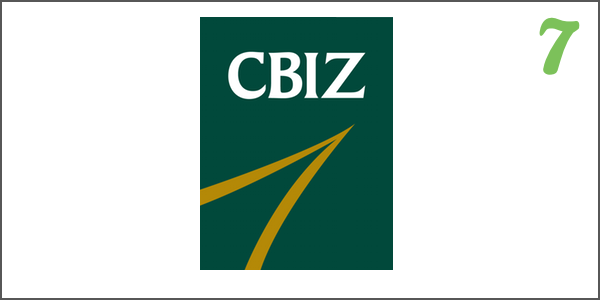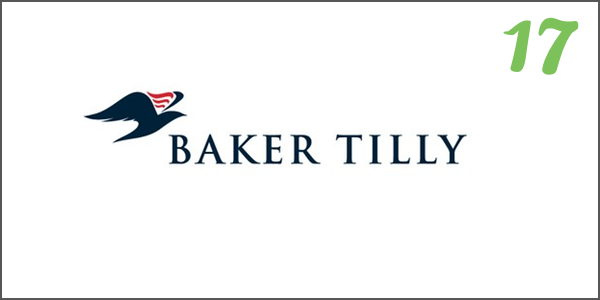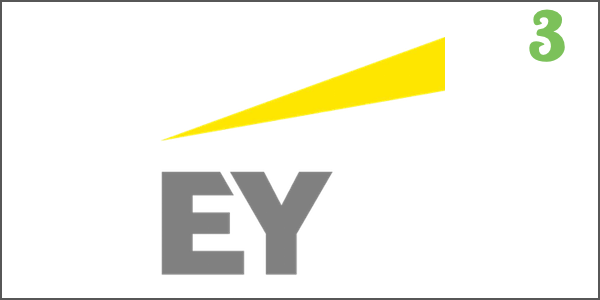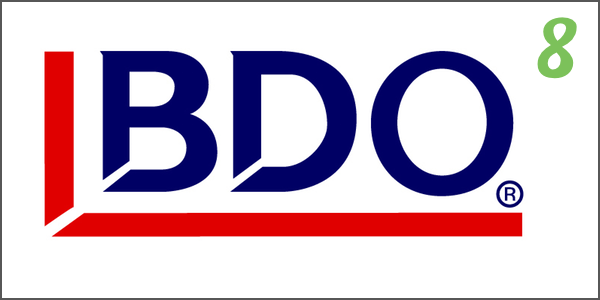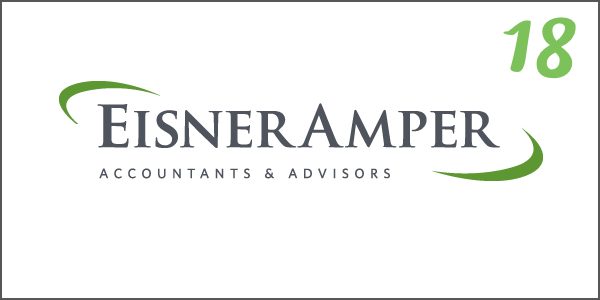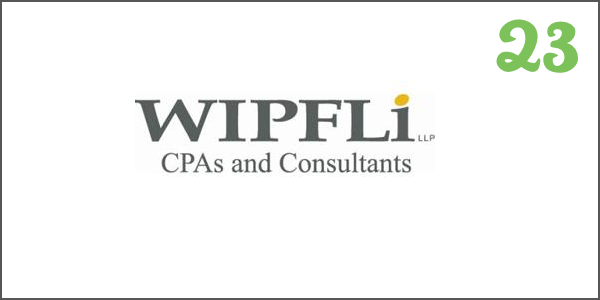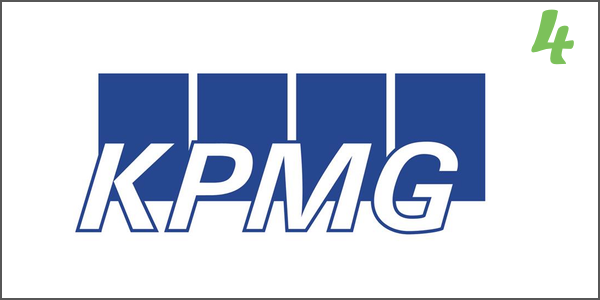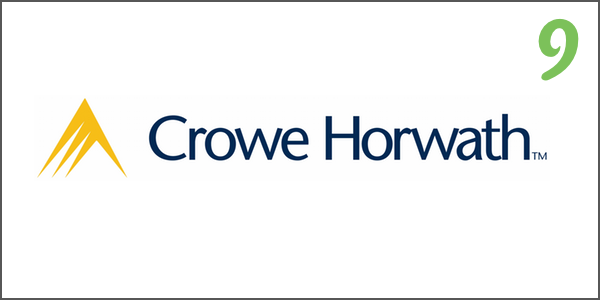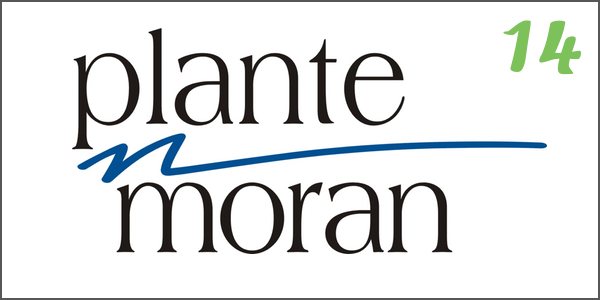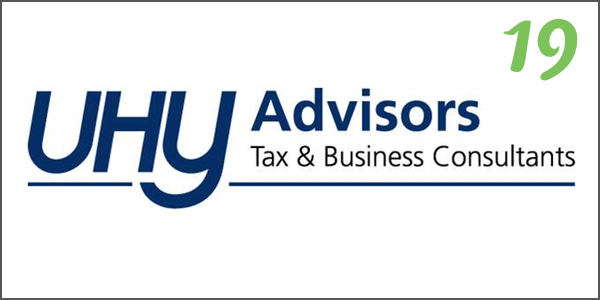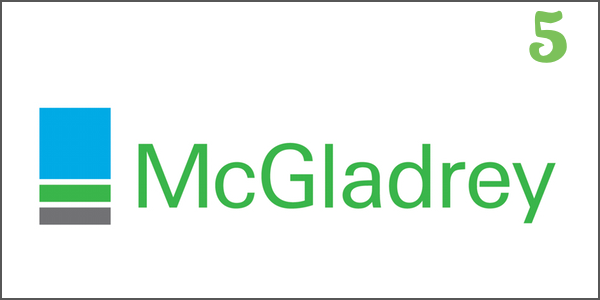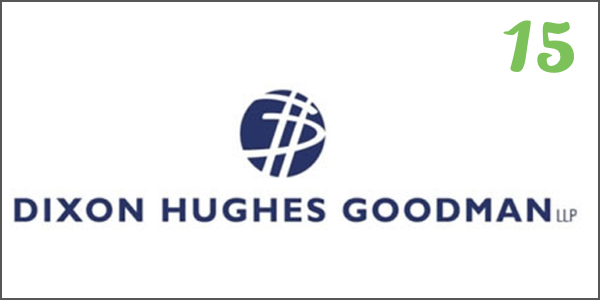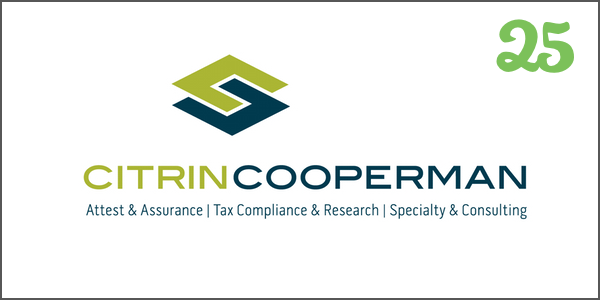The Bean Counter Interview
Clifton Larson Allen Interview
Maria has been in public accounting for twelve years, serving public and private companies in industries such as manufacturing, third-party administrative services, software, health care, biotechnologies, and employee benefits. Previously, Morales worked in private accounting in the aeronautical industry. She is one of the founding board members of Tampa’s Association of Latino Professionals in Finance and Accounting (ALPFA) chapter and currently co-chairs the women of ALPFA committee.
Morales also serves on the board of the Tampa Bay Technology Forum (TBTF) and is passionate about initiatives that focus on the advancement, retention, and empowerment of female professionals. She heads the recruiting efforts for LarsonAllen’s Tampa, Florida location and received both her bachelor’s and master’s degrees in accounting from the University of South Florida. Morales is a member of the American Institute of Certified Public Accountants (AICPA) and the Florida Institute of Certified Public Accountants (FICPA).
To listen to the entire interview, see to the right.
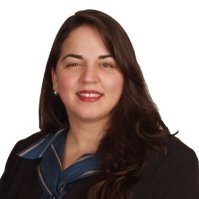
Starting Salary & Where to Apply
or
Students: Apply with local HR. Find them here.
-
Intro: Do you have a job in accounting? Are you looking? Whether you’re starting from ground zero in university or are crushing it with your full time career, the Bean Counter is the show for you.
Here is your host, Andrew Argue!
Andrew: Good morning, everyone! Thank you so much for tuning in to this episode of The Bean Counter. I’m your host, Andrew Argue. Today I’m in Tampa, Florida at the offices of Clifton, Larsen and Allen interviewing Marie Morales, a partner here.
Maria, thanks for coming on the Bean Counter.
Maria: Absolutely! I’m happy to be here!
Andrew: Tell us all a little bit about your background. Where are you from? Where did you go to university? What are you doing now?
Maria: Great! I’m originally born in Puerto Rico. My parents moved to Tampa, Florida when I was a year old and I’ve kind of been here ever since then. Being a Tampa girl, I went to University of South Florida, got my undergrad and graduate degree in accounting there. While I was going to school, I basically worked at private accounting for about five years at a small local corporation. Then I started with the top five national firm for about eight years and then switched over to what was then Larsen Allen about four years ago. I’ve been here four years and got promoted to partner about three years ago.
Andrew: Very nice! How long was the job you had when you were in university when you were doing that?
Maria: Five years.
Andrew: Okay, wow! Total years in accounting!
Maria: Total years.
Andrew: You did the whole thing in university we’re talking a long time now.
Maria: Exactly!
Andrew: That’s cool. When you started right out of university you already had five years in the bag.
Maria: That’s right.
Andrew: You must have beat everybody out there the first year. Everybody else is like, “What is the PNL?” That was me. I said, “What does PNL stand for?” You must have known everything.
Maria: I wouldn’t say exactly but it does give you kind of a different perspective when you walk in. There is a tremendous amount of value to say, I understand what an influence looks like.
Andrew: Yeah.
Maria: I understand what a check register looks like.
Andrew: Or what a check register is.
Maria: Exactly! It also helped me relate to my clients a little better; meaning that I’ve been in their shoes before whereas when you’re typically out of school you don’t really have that appreciation or respect, if you will, with your clients. They have a totally different path sometimes.
Andrew: Absolutely! Tell us about your current role as a partner here. Tell us about one time in particular where you got really excited about working here in this profession.
Maria: There are several but I would say probably the most excited was this past May. We had our new partner orientation which was a little delayed since it’s almost three years to the day here now. We merged with Clifton Gunderson – Larsen Allen merged with Clifton Gunderson – about two years and it was a couple of months after I got promoted, two and half years I would say. We had to kind of roll out our firm culture, kind of say who we are, what we’re trying to do here and they’ve really done a tremendous job in doing so. The new partner orientation for me was just eye-opening. I got to hear directly from our firm leadership what the passion and the vision is going forward for the firm which is different than what I’ve seen in the past from other firms, competitors, where it used to be. It’s going to make me a more well-rounded professional.
Andrew: Great! One of the big thing that’s been in the media lately is Sheryl Sandberg, the Facebook COO, wrote a book called Lean In. When I was working in the Public Accounting Office, we didn’t have any female partners. That was always a big strike against that particular office or that company.
Maria: Right.
Andrew: What’s it like for you, being a female partner? Are there others here? Do you have mentors that were female partners or are you sort of the trailblazer? Give us the background there.
Maria: At my previous firm I had a female partner that was my direct mentor. She was tremendous and instrumental in teaching me a lot of skill sets that I use day to day today. Here locally, our partner in charge of what we call Central Florida is female.
Andrew: Okay, great!
Maria: We have – not necessarily in this office – I’d say a newer office but the earlier office has been much longer in terms of being around in this marketplace. They have a lot of female partners. I think it just speaks to the firm culture as a whole where we call ourselves ‘the career-building firm’.
Andrew: That’s awesome! That’s great to hear. You don’t see that at every firm, that’s for sure.
Maria: Right.
Andrew: I remember when I was going through the process, a lot of women wanted to know, “How many female partners do you guys have because I’m taking the career seriously.” It’s awesome that you guys have that.
One of the things that I like to do with people that come on the show who’ve been very successful, such as yourself, is I like to humble them for a minute. Take us back to a time where maybe you failed at something or you hit a bump in the road. If you could share that with us because a lot of people starting out say, “They join the successful people” and they think, ‘I must do everything perfect’. But the reality of it is all of us shortcomings. Can you share with us one failure that sticks out in mind?
Maria: Yeah. I think part of my struggle through the process and part of what happened right around when I changed firms is really surrounding a common theme I see with a lot of people, probably more so females than men, I’ve seen it. We get hung up on what everyone else is doing. We’re so focused on someone in our direct line path and “Why are they getting all these opportunities? Why am I not getting these opportunities?” and questioning the why’s. I think a lot of values that I hit in my career were because I was focused on that. When I excel it’s because I’ve completely shut everybody else out and I worry about Maria and what Maria can bring to the table.
I got laid off from my previous firm and it was basically a really challenging time and a lot of humbling experience going through that process. But along the way I kind of found my path. Luckily, the advantage here is that I knew four of the partners in this office, they were the quality firm that they were and was able to articulate after a week of “Oh my God!”, of getting refocused and re-setting and saying, “No, I drive my career. I don’t need to worry about who else is driving the career for me, not worry about what that firm can bring to the table so much as what I can bring to the table.
Andrew: Right. The story’s getting better so that’s awesome. This is why I like to do this podcast, because you get these incredible stories and I feel like we’re just getting into them now.
Tell me, you’ve been at Larsen Allen, correct me, is it four years?
Maria: Four years.
Andrew: Okay. That’s something that I want to hear about. If you get fired from your last job, you get, “Oh!” Then four years later, boom, you’re a partner running the show in another firm. How did you make such a big pivot? A lot of people would say, “Wow, she really turned things around. Now she’s a superstar.” Not that you weren’t before, just not the right mix.
Maria: Right.
Andrew: That’s interesting. What made you make that shift and totally turn it up?
Maria: I would say partly it’s just that I never really tooted my own horn enough. I kind of was there, a work horse if you will. There were opportunities there but I didn’t speak up enough. I used this month off that I had – in two weeks I had a job offer – but I used the month off to kind of clear everything because I wasn’t happy and that attributed to the fact that maybe I didn’t get all the opportunities from the perspective of promotions faster or whatever the case may be. I was successful, I did work hard. I worked on a lot of high risks and engagements and public company work. It was just mostly we lost a lot of revenue for the office. But a lot happened there and it really taught me a lot of self reflection to sit there and say, “Why was such and such individual so successful?” and he kind of raised his hand for everything.
Andrew: Yeah.
Maria: He was one of the few that did and he was one of the most successful. He was a great guy – my peer – that I always kind of looked at and said, “I got to really think about how he did it” and I have to have a different attitude about it. Resetting the way I looked at things when I walked in the door and it’s all about timing, right place, right firm and a lot of that obviously has to do with that. I would say probably got promoted maybe a year or two years faster because an opportunity opened up here, to be honest. But in the time that I started here I just said, “There’s a lot of work to do here as a main office.” I brought to the table all the things that I saw a little over eight years that were done well, that weren’t done well and just started implementing improvement.
The biggest thing is really not being me-focused as much as firm-focused, office-focused to help everybody. I think that whole mindset shift of just owning my own career is really what changed it for me.
Andrew: That’s an awesome story! I get emails sometimes from people who have been let go. I can imagine feeling very down about it, very discouraged and then to go into the same line of work and just smoked it in the last couple of years and been promoted a partner, good for you! That’s a great story and I appreciate you sharing that, being so open about that.
You worked in one of the big five firms before. Give us a feel of how big Larsen Allen is or how big Clifton Larsen Allen is. A lot of people, in the beginning of their career question, “What size firm should I go to? Do I have to go big four?” What size is CLA and what are the differences between the bigger firm that you worked at before and now? Kind of lay that out for us.
Maria: I would say now it depends on the ranking when it comes out but we’re about the eighth or ninth largest firm nationally. We have thirty-six hundred employees nationwide. We are an affiliate of NETSEA which is an international membership firm and we are the largest customer referral source in the US for NETSEA.
We are a very large firm. We have all the resources that another top ten firm has from a training perspective, from head office, HR benefits perspective. The client base in which we serve is different. We are the only top ten firm that focuses on that small to mid-size market. We offer a variety of different industries, we’re very industry-specific but we’re very focused on basically I would say – we’re probably going to get to this – there’s not a lot of egos.
Andrew: Yeah.
Maria: One of our firm leaders basically said we’re ordinary people doing extraordinary things. I think that’s very true. It’s a Midwest traditionally firm. The culture is very, very different. I feel like we work with our clients more and we’re kind of trying to come to the end together whereas I felt previously I was always fighting my clients against the rules.
Andrew: Yeah.
Maria: We’re the only top ten firm that doesn’t public company work from a task-function perspective.
Andrew: Interesting.
Maria: It’s a different culture altogether.
Andrew: That’s great to know! Interesting; both of those perspectives. The next question I want to ask, you’ve mentioned a couple of things already but one of the things I want to ask for people who come on the show is to share the greatest challenge that you’ve met in your career and how you overcame it or something that was challenging for you.
Maria: Being laid off is definitely the biggest challenge.
Andrew: I think we’ve already covered this but let’s see what else.
Maria: That was definitely a shake-up for me, considering I was the breadwinner for my household perspective and that kind of stuff. Otherwise I would say there are a lot of challenges along the way, peaks and valleys, promotions, understanding your role. I would say being laid off is probably the biggest.
Andrew: Yeah, and we’ve gone through that and that’s an awesome story.
Maria: Right.
Andrew: I’m really glad we got that on the podcast.
Maria: Changes and roles as you progress in your careers is always the biggest challenge. It’s sitting back and evaluating and focused on getting the task at hand done and prioritizing everything and really just owning your own career again is how you get through it.
Andrew: I’m sort of putting myself in the position of someone that you’d maybe worked with in your old firm and be like, “Wow, they let Maria go.” Then a couple of years later they’re still kind of burning the midnight oil trying to get that next promotion and you made partner! That’s probably awesome! Good for you!
One of the questions that we ask everyone is what’s a great resource that you’ve utilized along the way that’s helped you get to where you are? Maybe something that someone can go out there and implement today.
Maria: Resource as in individual?
Andrew: It can be. A lot of times we have people say a certain individual in their life, maybe a coach or mentor, someone in their family or something on the internet that they read or something like that.
Maria: For me it’s always been mentors along the way. The reason I got into accounting, first and foremost, was my mom introduced me to it a very long time ago which is why I had the ability to start on private accounting while I went through school.
But when I went through private I met my first mentor, at a very young age because I worked part time even when I was in high school. Sixteen I was assisting my mentor in an audit. I didn’t know what I was doing because I was working for the company that was getting an audit. He’s like, “You’re really good at this. You got a knack at it. Maybe you have some interest.” For me, he helped me because I’m a first generation college student in my family – from the youngest, what I would call the first generation of cousins. I had no clue what I was doing in college so for me hearing that resource and having that resource to ask questions on what should be done, your professors and Beta Alpha Sci and such. That definitely helped me tremendously going through and starting a career. The bigger firms have former mentoring programs and coaching processes and I had a couple tremendous coaches along the way.
Andrew: Can you tell us what your single biggest piece of advice would be for someone who’s just starting out in their career, either in university waiting to get in there full time or maybe just starting?
Maria: I would say you have to get in it with the right mindset. The biggest challenges as you know, there’s a lot of attrition in public accounting. They have an end goal, whether it’s going for a couple years, go to a big four and go get a controller job or whatever the case may be or you plan or really wanting to be a partner one day. I think either way, you have to go in it with the right mindset. You can’t just go in and say, “I’m going to be here two years. I’m just going to get all my resume and call it a day because you’re not learning anything from that experience. You really have to get every opportunity you can, more so if you’re only going to be there in a couple of years to learn everything you can to kind of build your own career.
Andrew: Great! Perfect! What about for someone that’s been working for a while and either wants to make a change, go to another company or isn’t happy in what they’re currently doing. What’s your advice for that person to sort of take it to the next level from a happiness with their job perspective?
Maria: In relation to whether or not they want to make a change in their career?
Andrew: Uh huh.
Maria: This is a tough question because in a way I had always wanted to make a change and I overdid it and I just waited until it didn’t get well and restarted. There were three rounds of layoffs and I was in that last round. I would say don’t be afraid.
If you’re in that situation or you’re at a different type of firm, then don’t be afraid to make a change. Don’t operate on fear. At CLA, we call ourselves the career-building firm because we want to build careers from the perspective that if we go on campus and you tell us, “I want to be a CFO one day”, great! We’re going to come on, we’re going to take you on, assuming you’re a good candidate, of course, and we’re going to help you get there. How do we do that? Where do you want to start? We want you to be a professional service person. We want to get you exposed to odds, tax, outsourcing division and business line. Maybe you test it out there, build the skill sets that you need. We’re one of the few that are kind of embracing this methodology that we rolled out as part of our firm culture. Going to a place like CLA, you can get there. Do not be afraid to say what you want.
Andrew: We finish off with the same two questions every time. Before we get into that, tell me a little bit about your role as a partner playing into that culture. What type of clients are you in? What type of industries? Are you doing audit tax? What is your typical month of work look like?
Maria: Typical month, there’s a lot that goes into that.
Andrew: Let’s start with day one and then day two, three until we get to the third.
Maria: Exactly!
Andrew: We’ll have a long podcast.
Maria: Technically, audit partner industry focused or commercial services but predominantly my primary industry is manufacturing and distribution clients. The secondary industry related to that is technology-focused. Last, what we would call more of a service/industry is employee benefits. That’s pretty much what we would lead from a true industry test function perspective.
What other things do I do? I can utilize and serve in an outsourcing capacity. That might be I’m assisting small to mid-size public companies in writing precision papers, doing tax provisions and such like that. We don’t audit public companies but we can do that based upon some of the skill sets that we have like my prior history.
Andrew: No audits on the public companies but you guys do do some consulting work?
Maria: Exactly!
Andrew: Okay.
Maria: On the benefit plan side, we do love and case which are public companies. But we do not do any audits of public companies other than some small banks that are on the exchange.
Andrew: Another question that goes on to a lot of people’s minds out there is with the PCOB being so involved in a lot of these companies, you have to answer to regulators even at the early years of your career. If someone were to come to CLA, is that something where some of your engagement are inspected by the PCOB? Is the firm inspected by the PCOB because you do look at some of these clients that are public?
Maria: Yes. We are PCOB registered and those that are within that industry which is the finance institution group are going to be regulated.
Andrew: Okay. That’s a good, rounded picture: audit role, outsource CFO and some tax as well?
Maria: I am going to be in that avenue. I’ve done a lot of C-core private equity bank companies where I’ve done a lot of revisions in the past so I’m a lot more familiar than your typical auditor. Operationally, I do recruiting, scheduling, running partner-manager meetings, weekly staff meetings, all that good stuff, mentoring, coaching.
Andrew: I think we did go about the thirty days. Interesting!
Maria: Yeah.
Andrew: I think we might have gone through it.
Maria: Exactly!
Andrew: That’s awesome! That’s awesome that top ten firm but you’re still getting to see all sides of the industry, all sides of the business and really getting well-rounded. That’s great!
The last two questions we end up with – the first one is what’s a great book that you’ve read and how has it helped you?
Maria: I would say that the last great book I’ve read which has been out for a while is Getting Naked. I’m sure you’ve heard of that book, a business fable. Patrick – I forget what his last name is – Lencioni, I believe. Is that right?
Andrew: I don’t know. I’ve never heard of it. I’m going to find it after this.
Maria: I’ve always heard about this book but never read it. It was part of our new partner orientation that they want you to read about it.
The basis and the premise is there are three basic fears. It goes through this fable – if you will – a story of someone in professional services and he’s basically going through an acquisition or a potential merger and he goes through. He finds out a lot about this kind of smaller to mid-size firm and what their culture is. He learns that they are a lot more profitable than the bigger large firm. That basis, what he learned is summarized in these three fears which I think I’ll summarize by saying it’s all about ego.
Andrew: Very interesting. If anyone was interested in that book I’ll make sure and include the link in the podcast notes so they can check it out.
The last question we ask is what’s a great quote that you can share with us that has maybe helped you in your career?
Maria: This quote doesn’t come from a famous person.
Andrew: No worries.
Maria: The quote comes from my fiancé. He constantly says this to me, “Mamita, don’t let other people take up space in your head” and he tells it to me all the time. He’s basically saying stop worrying about what everybody else is saying or doing, just do you.
Andrew: It sounds like it’s going to be a good match because earlier on the podcast you said that’s when you’re performing the best,
Maria: Exactly.
Andrew: When you’re able to sort of focus and stay in your own mind rather than worrying about everybody else.
Maria: That’s right.
Andrew: Perfect! Congratulations! Awesome story! Thanks for coming on the podcast.
If there’s someone out there that love the podcast and wants to get in touch with you, are you on LinkedIn? What’s the best way?
Maria: LinkedIn, email address of course, you can put my contact information.
Andrew: Okay. I’ll include that below as well.
Maria: Perfect!
Andrew: Perfect! Thanks so much for coming on. I really enjoyed it and I appreciate it!
Maria: Absolutely! Thanks, Andrew!
Andrew: Thanks everyone for tuning in! You can email me at Andrew@thebeancounter.org. Check the show notes for all the information. Thank you so much for listening!
CPA Exam & Starting Bonus
CPA Exam Policy
Reimburse Exam Costs: Yes
Reimburse CPA Review Course: Yes
CPA Passing Bonus: Yes
CPA Passing Amount: 2,000
Clifton Larson Allen Locations
Key Recruiters
Reaching Out to CLA
Getting in the door at CLA and the rest of the top 10 firms can be tough, but if you approach it the right way, it's really not that hard.
For a firm of this size, there isn't a key recruiting contract that will work for you anywhere in the country. That will change as we go down the list of top firms.
With CLA, you're going to have to do some research.
The good news is that I'll walk you through step by step how to target specific recruiters and firm staff, and exactly what to say to get your foot in the door! You can also get in touch with the National Recruiting Leader as a last resort if you haven't been able to hear back from any local HR.

*Acquired by KPMG
**As ranked by Accounting Today







